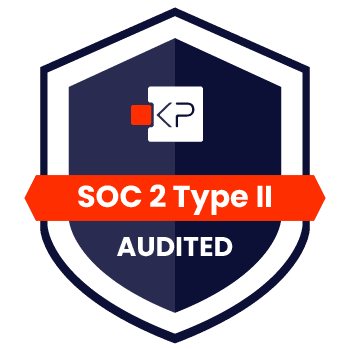When many commercial motor vehicle fleet managers and executives in the U.S. and Canada recall their past experiences in working with compliance services providers, they also experience the psychological equivalent of a George Costanza “Atomic Wedgie” in the negative outcomes which transpired.
The examples of these horror stories, shared by fleet managers and executives over the years are numerous:
- Missed state filing deadlines in International Fuel Tax Agreement (IFTA) tax returns submission, resulting in carrier penalties and interest – while also triggering a subsequent carrier IFTA Audit;
- Lack of sufficient data integrity checks performed in IFTA and International Registration Plan (IRP) mileage calculation, resulting in MPG inaccuracies / overpayment of carrier taxes to jurisdictions – while again triggering subsequent carrier IFTA / IRP Audits;
- Inadequate record-keeping and record retention practices for IFTA and IRP source data or documents – resulting in carrier IFTA / IRP Audit ramifications – ranging from $55,000 to $1.4 Million – in carrier Audit Assessments;
- Expired vehicle credentials [IRP and base license registration, IFTA, Unified Carrier Registration (UCR) Operating Authority, Hazardous Materials Permits, etc.], resulting in excessive costly state citations / fines, detainment of vehicles at scales, and actual vehicle impoundment;
- Insufficient quality control and accuracy in FMCSA / DOT safety services (driver qualification, hours of service, periodic inspection, daily vehicle inspection report, drug and alcohol testing, etc.) delivery – resulting in carrier expansive FMCSA non-compliance financial penalties, with subsequent carrier receipt of “Conditional” and “Unsatisfactory” ratings;
- Lack of proactive leadership by compliance services provider to identify gaps in carrier FMCSA / DOT compliance practices and elevated risk areas requiring immediate carrier focus and correction – resulting in carrier non-compliant Compliance, Safety, and Accountability (CSA) metrics, FMCSA / DOT interventions and compliance reviews, lost carrier revenue as a direct consequence of shipper avoidance due to deficient CSA / BASICS scores, increased insurance premium costs, and tremendously elevated fleet liability in civil litigation exposure;
- Carriers extensive financial loss of fleet expenditure funds provided to compliance services provider – advance / deposit funds forwarded by carrier to compliance services provider intended to be disbursed to federal and state agencies on the carrier’s behalf for IRP / Base license fees; IFTA fuel, mileage and highway-use taxes; heavy vehicle use taxes, title and sales tax expenditures, etc. – funds that the compliance services provider instead spent internally / embezzled.These horrific instances resulted in the carrier paying the federal and state agencies for these identical fleet expenditures TWICE in order to continue compliant operations on an intrastate or interstate basis.
Unfortunately, these above types of negative fleet operational and financial consequences are experienced every single day by carriers – as a direct outcome of the carrier not selecting the “right” compliance services provider.
Fortunately, by completing a concise, due-diligence process, in asking a number of critical vetting questions, the opportunity absolutely exists for the carrier to make this “right” selection – and attain all premier, next-level benefits in fleet cost and risk reduction, and streamlined process management – desired in meeting their organization’s objectives.
Being fortunate and blessed for the past 37 years to experience the wonders of the Transportation Industry – and the tremendous people which make this important Industry so great – I’ve had the opportunity to hear 1st hand from many clients – and also, objectively view – the Good, the Bad and the Ugly of the industry’s compliance services providers throughout this timeframe.
In drawing upon this experience, the 2nd installment of this series will next focus on these Critical Vetting Questions and Qualification Criteria required to assist you in achieving this “right” selection to meet your needs – immediately, and for many years into the future.
Stay tuned – look forward to visiting soon!


